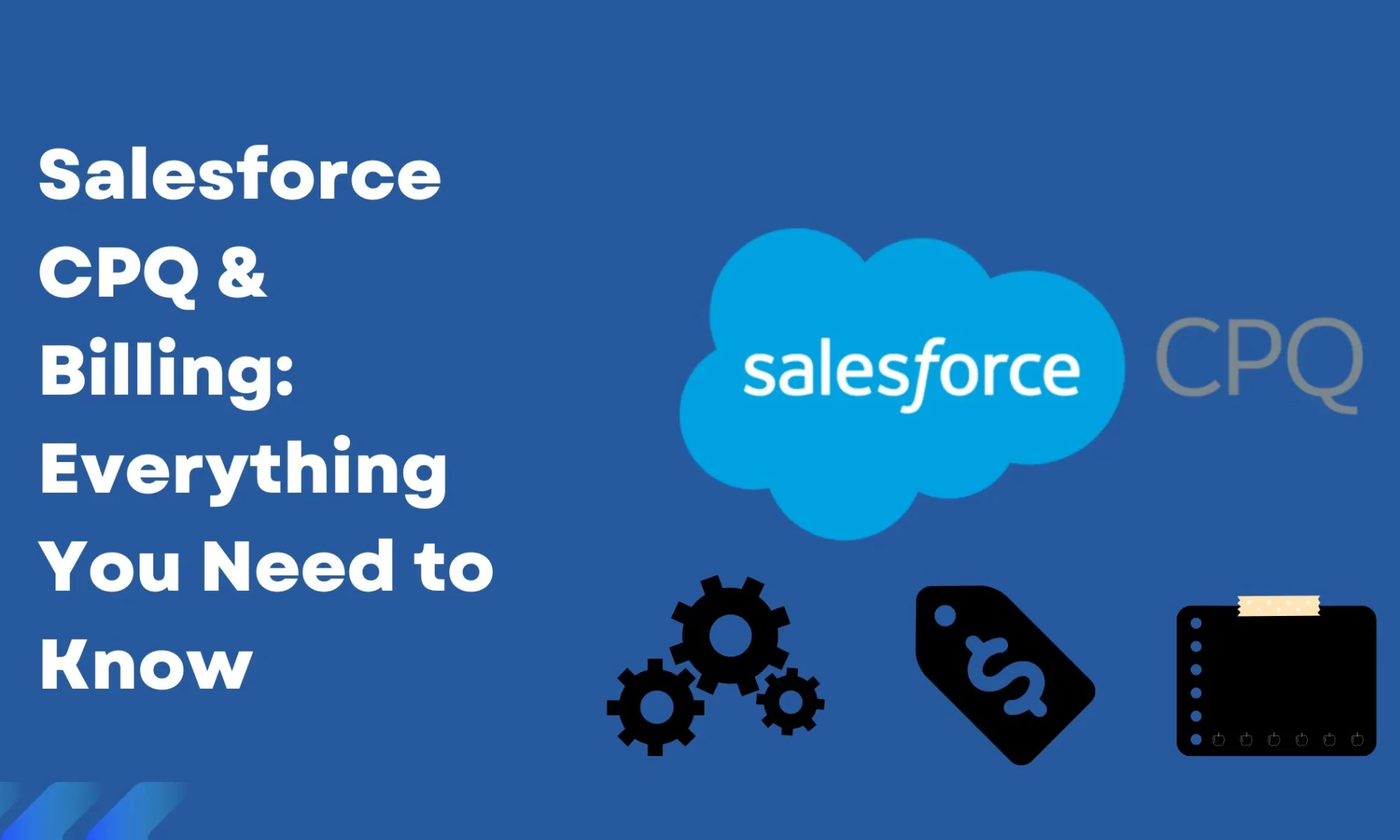1. What is Salesforce CPQ?
Salesforce CPQ (Configure, Price, Quote) is a cloud-based software solution that enables companies to streamline their sales process by providing accurate pricing, product configurations, and quotations. CPQ ensures that sales teams can quickly generate error-free quotes for complex products or services, improving efficiency and customer experience.
The core functionalities of Salesforce CPQ include:
- Product Configuration: Customizing products and services based on customer needs.
- Pricing Management: Ensuring pricing accuracy with features like discount control, volume pricing, and tiered pricing.
- Quote Generation: Creating and sending professional, branded quotes directly from Salesforce.
By automating these processes, Salesforce CPQ reduces manual errors, accelerates sales cycles, and enhances customer satisfaction.
2. Who Needs Salesforce CPQ?
Salesforce CPQ is ideal for businesses with complex products, pricing structures, or dynamic sales cycles. Key stakeholders who benefit from its implementation include:
- Sales Teams: CPQ enables sales representatives to create accurate, customized quotes faster, freeing them to focus on selling.
- Sales Managers: It provides visibility into deal pipelines, pricing strategies, and performance metrics.
- Finance Teams: CPQ ensures revenue predictability and accuracy in sales forecasts.
- IT Departments: While Salesforce CPQ requires IT involvement during implementation, ongoing support is minimal since it’s a cloud-based solution.
Industries like manufacturing, telecommunications, software, and professional services often have a higher need for CPQ due to their complex pricing models and customizable products.
3. When Should You Implement Salesforce CPQ?
Timing is critical when it comes to CPQ implementation. Businesses should consider adopting CPQ when they encounter the following scenarios:
- Growing Sales Volume: As sales volume increases, manual quoting processes become unsustainable.
- Complex Product Offerings: If your products or services have multiple configurations or options, CPQ can simplify the process.
- High Quoting Error Rates: If errors in pricing, product configuration, or contract terms are common, CPQ can eliminate manual mistakes.
- Increased Sales Cycle Time: If it takes too long for your sales team to prepare and send quotes, CPQ can significantly reduce this time.
Early adoption can give companies a competitive edge by optimizing sales efficiency and customer satisfaction.
4. Where is Salesforce CPQ Used?
Salesforce CPQ is widely used across industries and geographic regions. While the software is industry-agnostic, it’s particularly useful for businesses with customizable products or services. Common use cases include:
- Manufacturing: Configure highly customized products and streamline pricing for large orders.
- Technology & Software: Enable software subscription models with automated renewals, discounts, and add-ons.
- Telecommunications: Simplify the complex bundling of services and devices.
- Professional Services: Create custom pricing and quotations for consulting, maintenance, or subscription-based services.
Since Salesforce CPQ is cloud-based, it’s accessible from anywhere, making it ideal for companies with distributed teams and global operations.
5. Why Should You Implement Salesforce CPQ?
The “why” behind implementing Salesforce CPQ comes down to business growth, efficiency, and competitive advantage. Here are the top reasons to consider CPQ implementation:
- Increased Sales Efficiency: Sales teams can create quotes faster, with fewer errors, and close deals more quickly.
- Revenue Growth: By optimizing pricing and reducing errors, companies can capture more revenue.
- Scalability: As businesses grow, CPQ scales with them, handling larger product catalogs and more complex pricing rules.
- Enhanced Customer Experience: Faster quotes and accurate pricing improve customer satisfaction and brand reputation.
- Data-Driven Decisions: CPQ’s reporting and analytics features enable smarter decision-making for sales strategies.
How to Successfully Implement Salesforce CPQ
To ensure a smooth implementation, companies should follow these steps:
- Define Objectives: Identify the key pain points and goals CPQ will address.
- Assemble a Cross-Functional Team: Include sales, finance, IT, and management stakeholders.
- Data Preparation: Clean and organize product, pricing, and customer data before migration.
- Customization & Configuration: Work with Salesforce experts to configure CPQ to meet unique business needs.
- Training & Change Management: Train employees to use CPQ effectively and address change resistance.
- Testing & Launch: Conduct rigorous testing before going live to ensure smooth operation.
Conclusion
Salesforce CPQ is a powerful tool that can transform the way companies manage product configuration, pricing, and quoting. It’s essential for businesses that deal with complex products or pricing models. By understanding the “what, who, when, where, and why” of Salesforce CPQ, companies can determine if the tool is right for them and how to approach its implementation.
With the right strategy and support, Salesforce CPQ can reduce sales cycle times, increase revenue, and enhance the overall customer experience. Investing in CPQ is a strategic move that enables companies to stay ahead in today’s fast-paced sales environment.


